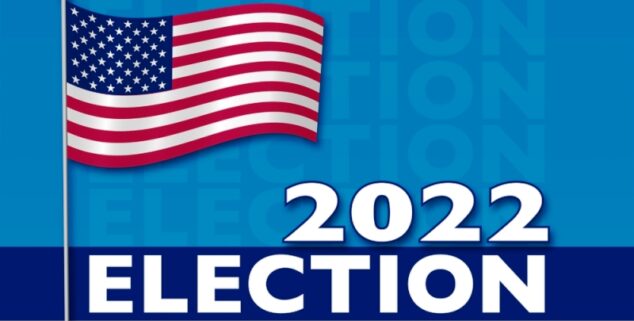News
Voters head to polls, braving bad weather and final flurry of ads
 Illustration of a get-out-the-vote message with the American flag. (Photo: Felipe Sanchez, via Shutterstock)
Illustration of a get-out-the-vote message with the American flag. (Photo: Felipe Sanchez, via Shutterstock)California voters — those who hadn’t already voted by mail, anyway — headed to the polls Tuesday on a rainy, blustery election day marked by close attention to key Congressional races and high-stakes ballot propositions, while California’s statewide contenders almost got lost in the shuffle.
On the weekend before election day, 11 of California’s Democrat-dominated 52-seat Congressional races were viewed as tossups. And while the outcome of those races was unlikely to alter the partisan majority of California’s delegation, the results could fuel a shift in the closely divided House of Representatives. There, the GOP can capture the house by taking a net of five seats. Predictions through the end of last week showed Republicans capturing 12 to 15 seats, or more.
The California elections officer reported that about 5.1 million ballots had been received by late Monday
Despite all the pre-election drama, there appeared to be no major surprises going into Tuesday. One oddity about this general election: The race for governor, which normally grabs voters’ attention, evoked little passion as incumbent Gavin Newsom had a nearly 25-point edge going into Election Day, according to polls. Instead, California voters more closely watched the array of ballot propositions and the tight Congressional races.
“When we launched our midterms forecast on June 30, Republicans had a 53 percent chance of taking over the Senate from Democrats, and an 87 percent chance of taking over the House,” wrote analyst Nate Silver of fivethirtyeight.com early Tuesday morning.
“We could almost have turned our servers off and let that forecast stand. Today, in our final forecast of the cycle, Republicans have a 59 percent chance of winning the Senate and an 84 percent chance of winning the House.”
In California, the state elections officer reported that about 5.1 million ballots had been received by late Monday out of some 22 million that had been sent to voters, or about 23 percent of those who had been issued ballots. In-person voting, in which voters personally dropped their ballots off, reached about 240,000 by Monday. Both numbers are certain to increase sharply as more vote-by-mail and in-person ballots are counted, and it may be days or weeks before the final results are in.
Surveys show that many Republicans prefer in-person voting, while Democrats prefer voting by mail.
On the California ballot are seven ballot measures, 52 congressional seats, a U.S. Senate race, several statewide races, including that of Gov. Gavin Newsom, who beat back a recall last year; judicial races, 20 even-numbered state Senate races and all 80 Assembly seats. Also facing voters are four Board of Equalization seats, and myriad local issues, including a tight Los Angeles mayoral race.
“And, for those clinging to every moment, I would predict that Dems are winning every competitive congressional race at the first results (which come largely from vote by mail) and then Republicans claw back the Rep held seats (CA3, CA27, CA45, CA40, CA42) by the end of the night,” election data analyst Paul Mitchell tweeted early Tuesday.
Even by campaign cash standards in California, the money flowing around two critical ballot measures dealing with gambling was enormous. A measure to allow online sports betting in California, Proposition 27, captured a total of $419 million, for and against. Proposition 26, which limited sports gambling to tribal casinos and race tracks, tallied about $170 million, for and against.
Want to see more stories like this? Sign up for The Roundup, the free daily newsletter about California politics from the editors of Capitol Weekly. Stay up to date on the news you need to know.
Sign up below, then look for a confirmation email in your inbox.

Leave a Reply